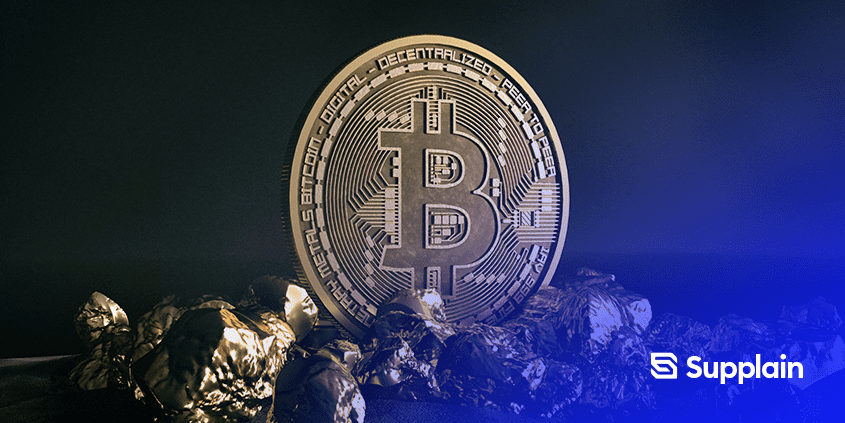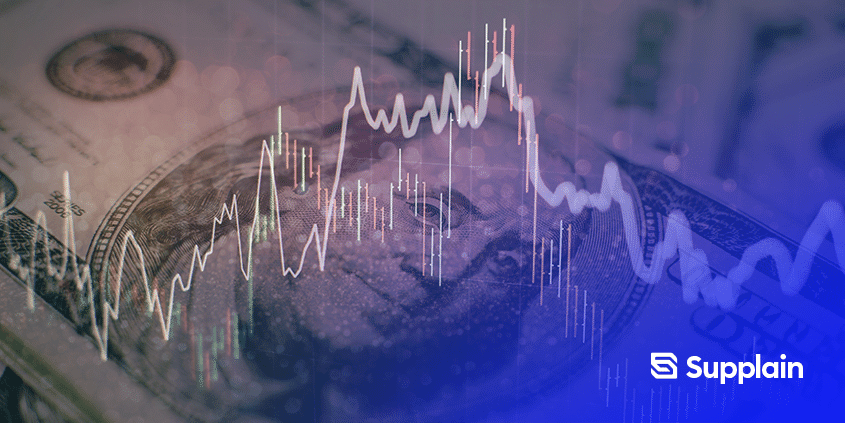
What happened to gold prices?
Based on the commonly held view that investors invest in gold during volatile times, you would expect gold to rally when markets fail, as happened during the COVID-19 pandemic.
With gold prices failing to recover their values as they previously did during economic crisis periods. Many investors have wondered whether gold's crown has been surpassed by investing in digital cryptocurrencies like bitcoin instead?
When gold climbed to $1,700 in the early months of the COVID-19 lockdowns, gold enthusiasts began to celebrate their patience from the preceding slump in prices.
However, their celebration was short-lived. Gold stumbled and remained around the $1,700 - $1,800 mark where it remains at the time of writing this article.
The metal has been pronounced dead.
Alternatively, bitcoin entered the COVID-19 lockdowns around the $10,000 mark, lower than its high in 2017.
By the end of 2020, gold was just around the $1,900 mark, yet bitcoin had exploded 190% to $29,000 per coin, reaching the $45,000 mark less than six months later, with gold still the same price.
Parallels between gold and bitcoin investing
Between 2008 and 2021, both gold and bitcoin values ran virtually in tandem, both in an upward trajectory.
Although price fluctuations connected with bitcoin were more volatile than gold prices, they both managed to attract investors, labeling both the gold standard of alternative investing.
There were many parallels with both bitcoin and gold investors at this time.
Both believed the dollar was at imminent risk of sharp and severe devaluation.
The metal has been pronounced dead.
Both saw inflation as eroding into their investments, and neither trusted governments per se. Both bitcoin and gold aficionados believe that governments worldwide actively stoke inflation as a means of indirect taxation and, thus, private wealth confiscation.
In other words, both believed that paper fiat currencies or cash was not worth investing in. With bitcoin and gold in limited supply, their investments provided sound returns.
But that is when the parallels ended. From then on, both prices began to diverge.
Bitcoin prices began to soar at a rapidly growing rate. Investors began to flee the gold markets in favor of the new 'golden boy' of investing.

How did bitcoin take over gold's crown?
Bitcoins and the concept of digital cryptocurrencies have increased in credibility.
Some investors are now prepared to view bitcoin as a viable alternative investment vehicle to gold when looking to shrug off the declining values of paper fiat currencies.
A rise in the popularity of cryptocurrency helped fuel a growth in demand for digital currency, which has helped boost the price of crypto coins, including bitcoin, accordingly.
Furthermore, entrepreneurs like Elon Musk become the poster child for the currency's viability and credibility.
However, Musk's predictions almost came across as a pump and dump scheme. one day buying up billions of the digital currency, making its value soar. A few months later, he changed his stance, stating that bitcoin mining causes too much environmental damage and saw the value suffer as a result.
It is also sentiment that has played a pivotal role in viewing why bitcoin's value remains higher than gold and whether it will be considered gold's successor.
Bitcoin optimists and gold pessimists?
Bitcoin investors believe that the world is improving and that humanity is improving if technology advances human society.
Bitcoin investors are technology enthusiasts. They believe that decentralized finance will be inevitable, from P2P payments, virtual currencies, and an increasingly globalized financial network. Bitcoin investors believe digital networks hold the key to a streamlined life cutting out the middle man and improving wealth amongst its holders.
Bitcoin investors tend to be younger, around the millennial age or below, and have a better sense of optimism because they benefit from the digital revolution.
They have seen extraordinary gains in their personal wealth because they were early adopters or have jumped onto the bandwagon in 2020. Thus, bitcoin investors are hugely optimistic about the currency's future use. It bodes well for them that the cryptocurrency is used more for their beliefs and wallets.
Gold investors are more pessimistic because they tend to be more cynical and take a more pragmatic approach to the world. In times of conflict and crisis, will a digital currency hold up?
They are not technophobes, far from it.
Gold investors view technology as both good and bad. Good for getting information about prices and timing to buy commodities and stocks and bad that too much information has caused disinformation.
Like how using social media influences the GameStop stock buying network of Reddit retail investors thwarted institutional investors' plan to short the stock.
Typically gold investors are older and probably wiser, viewing market peaks and crashes, bubbles, and general personal life experiences. Gold investors have lived through more and have the scars to show it.
Gold investors' enthusiasm can be seen as an indicator of why they don't cautiously buy it or rush to buy bitcoin, although they value gold.
So is bitcoin the new gold?
Fundamentally, gold has proven over centuries to be inversely correlated with the performance of stocks, bonds, and fiat currencies in inflationary environments. When they suffer, gold prices go up.
While claiming to be an alternative currency and a store of value, Bitcoin is an alternative asset, not an alternative currency. Bitcoin benefits from similar trends that drive up prices in the assets environment, namely that investment returns are sluggish.
For an asset to be highly valued, it needs stability. Bitcoin is an excellent speculative investment as an inflationary asset bubble. However, provided its high volatility remains, it will never replace stable assets.
In deciding whether bitcoin is indeed the new gold, investors should remember that the cryptocurrency market is still thinly traded and unregulated compared to the gold market.
Meaning that sentiment and prices could quickly swing away from the digital currency, as what happened after an appearance from Elon Musk on Saturday Night Live in May 2021.
Plus, governments are reluctant to accept cryptocurrency as payment, with some governments like China pushing back against it, causing the coin's value to drop in a day.
The conclusion has to be that while it can be a helpful instrument, it could be a risky conclusion to reach that bitcoin is about to replace gold as the default safe haven in times of trouble.
Resources you'll love:

![Here are the best NFT games [Updated List]](https://strapi.supplain.io/uploads/What_is_so_special_about_a_World_of_Freight_NFT_and_what_will_move_the_project_forward_b89946b520.png)
